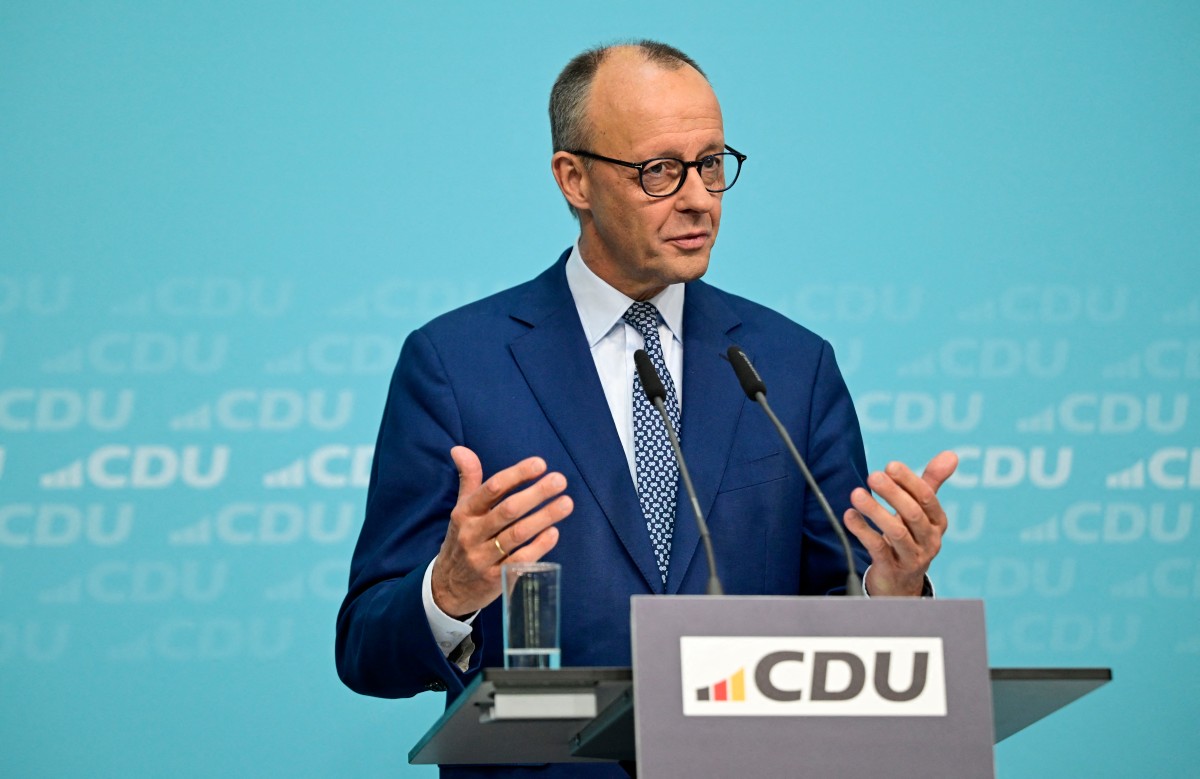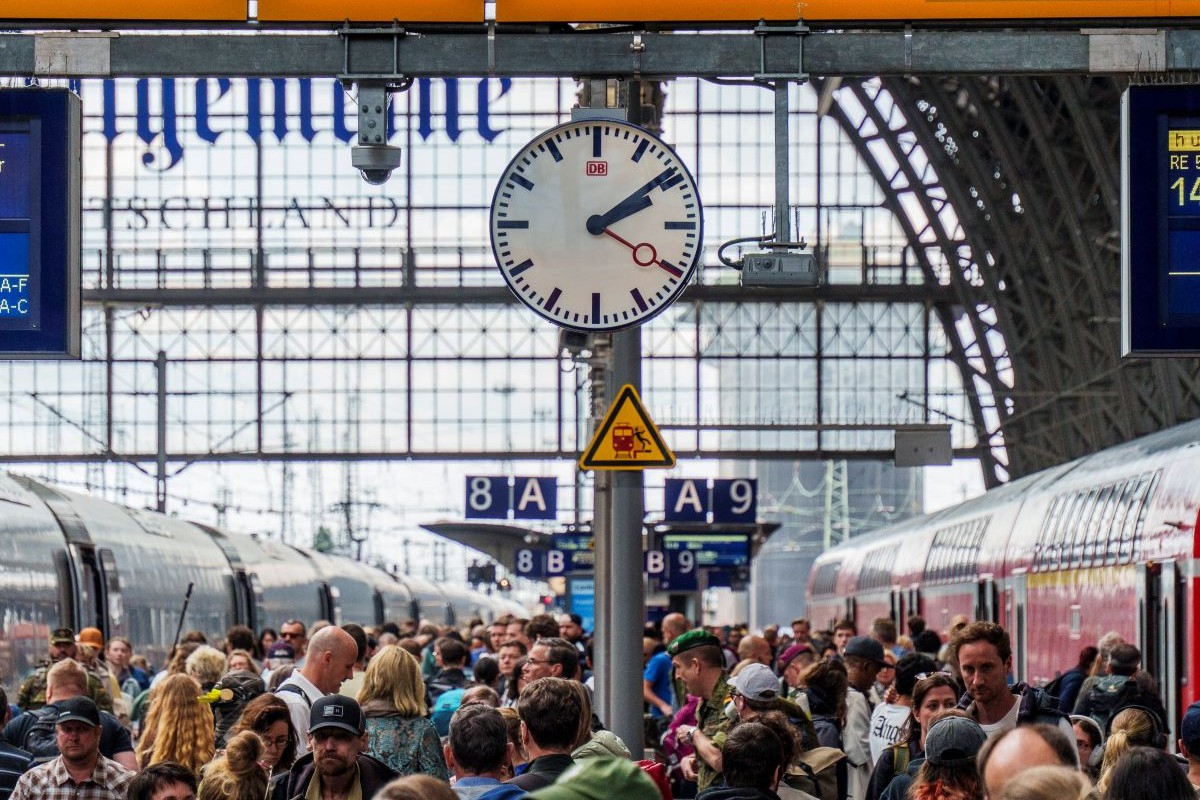German chancellor Friedrich Merz has come under fire for doubling down on what many see as racist remarks on diversity in cities. Rather than addressing underlying social issues, Merz risks sowing division, says Rachel Loxton.
Another week in Germany, another veiled racist comment.
With the rise of far-right movements like Alternative for Germany (AfD) in the last years, we have gotten used to hearing ever-increasing anti-immigration rhetoric. This is the party that openly embraced remigration – the mass deportation of migrants – ahead of the German election in February, and went onto win just over 20 percent of the vote.
But it’s not only the AfD – there’s been a general shift towards scapegoating migrants in the German political landscape.
And the latest remarks stirring up debate and putting the blame on foreigners? They come from the head of government himself: Chancellor Friedrich Merz.
In response to a reporter’s question last week about how to deal with the rise of the AfD, the leader of the centre-right Christian Democrats (CDU) made an off-hand comment that seemed to suggest he has an issue with the diversity seen in Germany’s cities.
Merz said the number of asylum seekers coming to Germany had fallen since he became chancellor in May, “but of course we still have this problem in the cityscape, and that is why the federal interior minister is now working to enable and carry out repatriations on a very large scale.”
The remarks, widely perceived as racist, sparked heated debates online, protests in German cities and calls from opposition politicians for an apology.
Yet on Monday, Merz doubled down. When a reporter asked if he would reverse his comments or apologise following the widespread negative reaction, Merz said he had “nothing to take back” arguing that those with daughters would agree with him.
“I don’t know if you have children, and daughters among them,” he said to the journalist. “Ask your daughters, I suspect you’ll get a pretty loud and clear answer. I have nothing to take back. To the contrary I stress: we have to change something.”
OPINION: Germany has sent the wrong signal to the very immigrants it needs
Advertisement
Pandering to the far right
Mind you, comments like these come as little surprise. Merz has repeatedly pointed the finger at immigrants or people with migrant backgrounds.
Like when he said that allowing fast-track naturalisation and dual citizenship for everyone “creates too many problems in Germany”.
Or when he seemed to blame immigrants for the rise of antisemitism. “We are prosecuting those who break the law, and frankly, we have a sort of imported antisemitism with this big number of migrants that we have within the last ten years,” he told Fox News during his visit to the US in June.
It’s no secret that the conservative bloc believes that people with a migrant background need to make a bigger effort to adapt to what they call ‘Leitkultur’ (the dominant culture) and accept German values.
But Merz has moved the party closer to the far right, particularly on immigration, raising questions about the strength of the ‘Brandmauer’ or firewall, a pledge by mainstream parties not to work with the AfD. The CDU leader has also said that parties have to answer the concerns of AfD voters.
READ ALSO: Merz calls far-right AfD ‘main opponent’ in next election

German Chancellor Friedrich Merz addresses journalists on October 20, 2025 at his conservative Christian Democratic Union’s (CDU) party headquarters in Berlin, Germany. (Photo by John MACDOUGALL / AFP)
Advertisement
Yet Merz seems unwilling to acknowledge the consequences of pandering to populist narratives that divide society. Even invoking deportations in this way harks back to the AfD’s rhetoric.
When you scapegoat one group, you create an unsafe environment for everyone, and especially for people who are immigrants or perceived as immigrants, regardless of where they actually come from.
In a video posted on Instagram, Berlin-based British author Musa Okwonga said the comments fuelled violence: “Quick question for the German Chancellor Friedrich Merz – what is the nature of the violence, what is the nature of the injury, that you want me as a non-white person in Germany to receive?…
“Because when you comment that despite the number of people deported from Germany, there’s still a problem with the Stadtbild, the cityscape, there are apparently too many non-white people running around your beautiful German cities, you’re clearly calling for violence against me and people who look like me.”
Last week, government spokesman Stefan Kornelius rejected accusations of racism, saying that according to Merz, “migration policy must not be about exclusion, but about uniformly regulated immigration”.
But experts have continually pointed out that suggesting there is ‘good and bad migration’ – welcoming visa-holders while cracking down on asylum seekers – doesn’t work.
“What happens is that when you promote a very unwelcoming environment, this affects all kinds of migration,” Pau Palop-García, a political scientist from the German Centre for Integration and Migration Research (DeZIM) told the The Local recently.
Advertisement
This is happening against a backdrop of rising hate speech. Germany’s Anti-Discrimination Agency annual reported earlier this year that racism and discrimination in Germany had hit a record high, while the rights organisation, Initiative of Black People in Germany, told Deutsche Welle that the political focus on immigration contributes to racism.
What about real solutions?
Of course, I want to see crime and anti-social activity addressed in Germany. Although the country is generally safe, there are real challenges, particularly around areas like central train stations.
In Berlin, for instance, homelessness, drug use and visible mental health struggles are part of everyday life. Unfortunately, knife crime, pickpocketing and domestic abuse also happen frequently. But it is wrong and dangerous to connect these problems to a particular nationality or group in society.
READ ALSO: Which types of crimes are on the rise in Germany?
That’s the message coming from many German politicians, too.
SPD Secretary General Tim Klüssendorf said societal problems should be addressed… “but to keep attributing everything to one issue – the issue of migration – and to mix so many things together and generalise: that divides people and destroys trust. And I have to say that my expectations of the head of a state are much higher.”
Advertisement
He added that it makes people who “have immigrated here, whose parents may have immigrated, who are simply not white or who look different, from Friedrich Merz for example,” feel uncomfortable.
Criticism for Merz has even come from inside his own party. Berlin Mayor Kai Wegner (CDU) told German newspaper Tagesspiegel last week: “Berlin is a diverse, international and cosmopolitan city. This will always be reflected in the cityscape.”

Travellers change trains on a busy platform at Frankfurt Central Station. Photo: picture alliance/dpa | Andreas Arnold
I’m not saying we should dismiss people’s worries or concerns about immigration either. I think it would be helpful to have more constructive conservations around the topic, but conversations grounded in facts rather than moral panic.
And instead of inflammatory statements, imagine if Merz actually proposed real solutions to problems affecting the lives of people in Germany – a county where more than a quarter of the population has a migrant background?
Solutions like investing in affordable housing, funding addiction support services, creating more opportunities for people to get into work and ensuring decent wages for all.
Such would be the first steps to creating a better cityscape for everyone.
Disclaimer : This story is auto aggregated by a computer programme and has not been created or edited by DOWNTHENEWS. Publisher: thelocal.de







